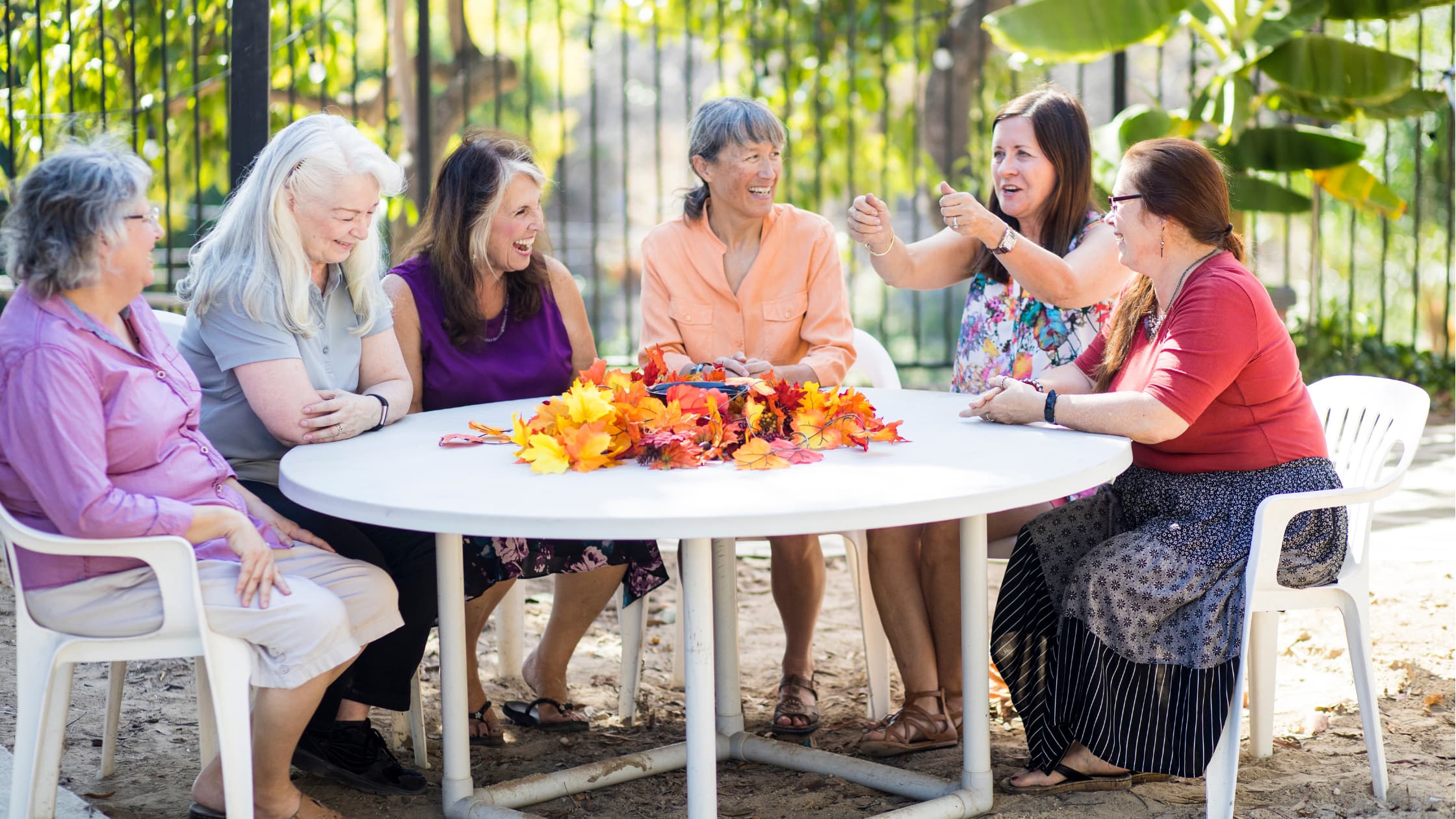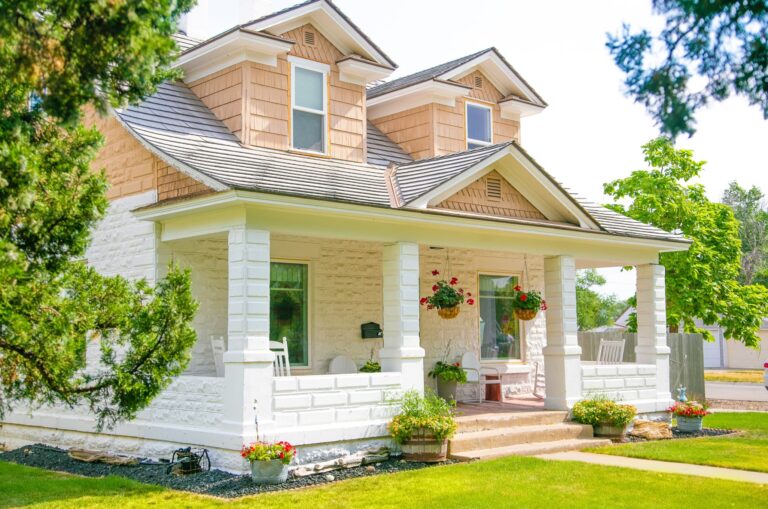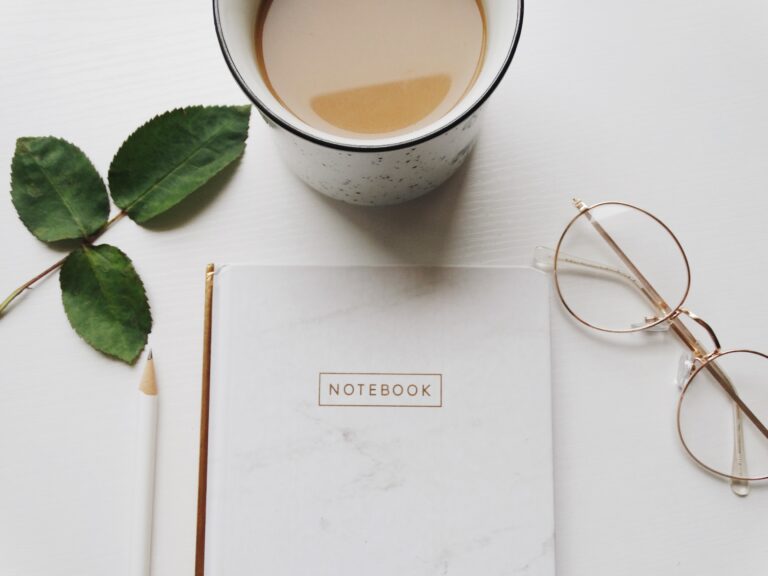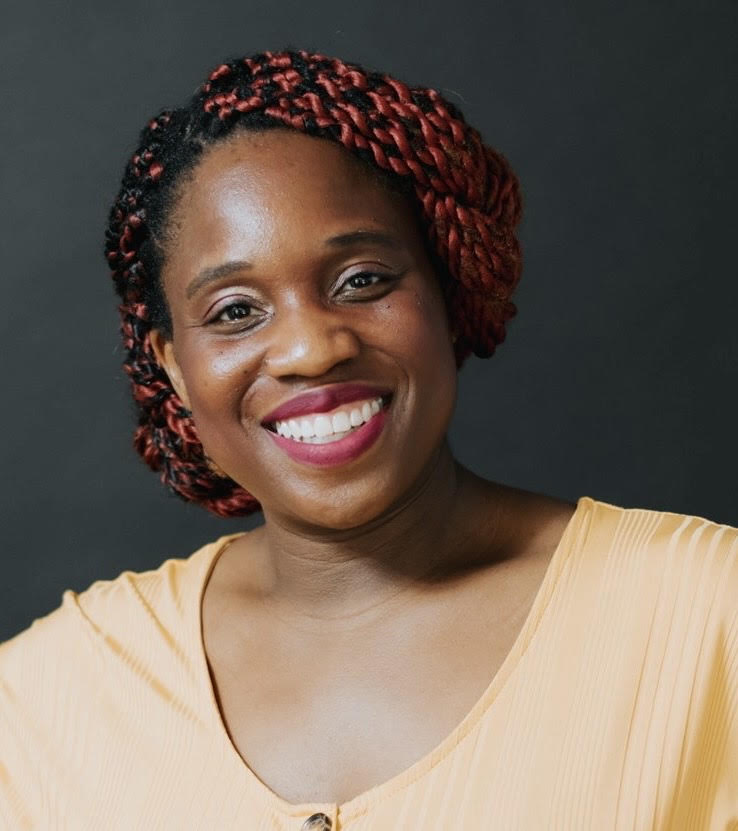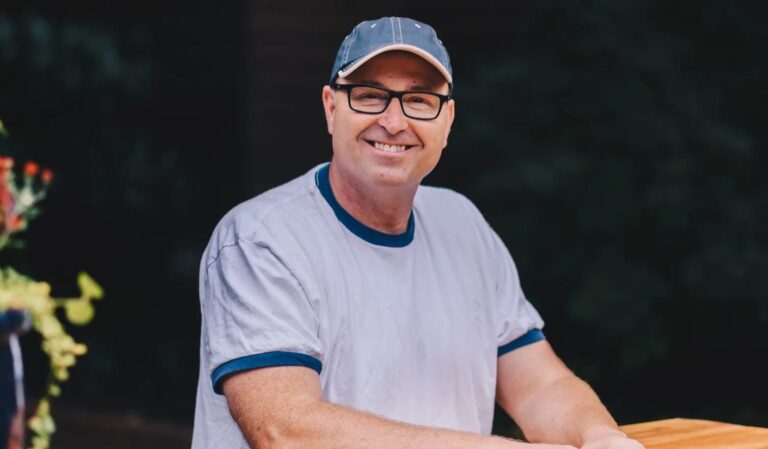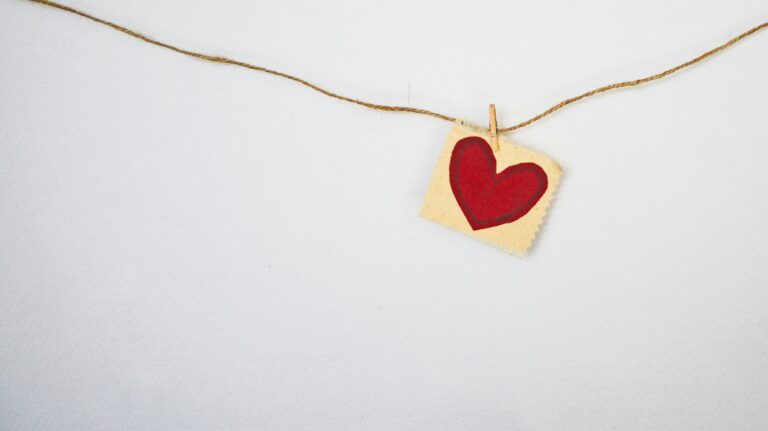Heartfelt Connections: Meeting New Friends as a Grieving Widow
For many widows, the landscape of your social life changes dramatically after your spouse dies. The world becomes this chaotic swirl of pitiful looks, too-quiet moments, and “I’m sorry for your loss” on an endless loop. People you’ve known forever suddenly don’t know to relate to you anymore. And if meeting new friends as a widow feels like trying to ride a bike again, only the bike’s on fire, and you’re riding through a tornado, we get it.
We’ve lived through all the complexities of friendship dynamics after losing a spouse. We know firsthand how during times of immense grief it may not feel natural or easy to reach out to others.
However, keeping the opportunity for connection open is crucial because you never know who might become a lifeline of support.
Key topics in this episode:
- The evolution of friendship post loss and how grief can drastically change your social circle
- The power of engaging in activities you enjoy to naturally attract like-minded individuals and build genuine friendships
- The value of shared grief and the distinct comfort in connecting with other widows who truly understand your grief journey
Listen in as we share our insights on meeting new friends as a widow, stepping outside your comfort zone, and never underestimating the power of connections that heal your soul.
Listen to the Full Episode
Links + Resources From This Episode
- Meetup.com
- Are you searching for emotional support, practical advice, and guidance on navigating widowhood? Join us in the Widow Squad membership
- Follow us on Instagram and subscribe to our YouTube channel
“Surround yourself with people who have gone through similar experiences because they speak your language.”
Episode Transcript
Jen: Hey there, and welcome to this episode of the Widow Squad podcast. It’s Jen alongside Melissa and Kim.
You know, making friends as a widow isn’t always straightforward, but it’s a journey worth taking. I remember not too long after the death of my husband, trying to find my footing in social settings, trusting my inner wisdom, and listening to my heart was key.
Today, we’re diving into this topic, sharing some personal stories and insights to guide and support you.
Let’s start with Kim.
Can you tell us a little bit about your experience with new beginnings and making friends as a widow?
Choosing Your Circle: Navigating Friendships After Loss
Kim: I wanted to actually start off by saying that you get to decide who you want or need to keep as friends when you’re widowed because sometimes your spouse may have had friends you really weren’t that close to or maybe didn’t like or just had no affinity for whatsoever.
Maybe there’s a little guilt there for some people who think they have to remain friends with their spouse’s friends after he’s gone. But that’s not necessarily the case. So, I just wanted to say that because, you know, we let guilt rob us sometimes of our real feelings.
Mark had some friends that I knew through him. We were not close at all, but I think they thought we would have continued our friendship out of respect for him. Or maybe thinking they were going to try to help me or whatever. But we didn’t because I really just didn’t have any reason to remain friends with them. So, I didn’t reach out. There was some reaching out on their part in the beginning, but I wasn’t rude or anything. It just kind of died a slow death because there was really nothing for me to do with them anymore.
I think that’s something I just wanted to make a point of saying is that you get to decide who you want to or need to keep as friends. It doesn’t have to be all the same people that you were friends with when your spouse was alive. It’s okay to choose. You get to choose.
When you’re newly widowed, you sometimes think that you’re going to be alone forever, and that means alone with no friends too. That’s not always the case, but you have to put yourself out there if you want to be in social circles or if you want to make new friends or keep your friends. You have to make an effort. In the beginning, I think we all just kind of hunker down and maybe stay in our house and don’t want to be social and don’t want to go out, and that’s fine. Again, you get to choose. But if you’re feeling lonely, if you’re feeling like you want some connection, you have to make an effort too.
I met some widowed friends through a family grief support group that we went to after my husband died. They were not all widows. This was not widow specific, but there were a few widows in there. So, I did meet some new friends. I met some widows. It’s nice to talk to other widows who know what you’re going through. You don’t have to limit your social circle to widows only, but it is nice to have that camaraderie of people who can understand what you’re going through. Because even though your other friends want to so badly, they want to understand what’s happening, they just don’t.
You could join groups online. You could join support groups in person, whatever. I met some really cool widowed women in my family grief support group. And I also met friends who weren’t widowed. So, in the first couple of years, I took my boys on some trips, and we went through guided tour groups. And I met families and other women that were not widowed on those trips too. We went on a trip in 2016 to Yellowstone and this group was all families. There were, like, six families in this guided tour group, and I’m still friends with one of the moms I met on that trip today.
There are all kinds of opportunities to meet people when you’re out and about if you choose to do that. If you keep yourself open to some of those opportunities. And I would also like to say don’t wait for invitations. Want to go do something? Then pick up the phone and call your friend or call your neighbor or call somebody from your church group. You don’t have to wait for people to invite you out. You can do the inviting yourself.
That’s not always going to feel like the right thing to do or the thing you want to do when you’re still really heavy in that grief. I’m not suggesting on day one you should be calling people and making lunch dates. But just keep that opportunity open. Because you get to do the inviting as well. Sometimes people don’t know how to approach you. They don’t know what to say to you. They don’t know if you want to go out for lunch. They don’t know if you want to go to the museum. Maybe you do, maybe you don’t, but if you do, you could also do the inviting.
So that would be something that I would definitely say to keep in mind. And the other thing is to take the pressure off yourself to make new friends by just doing activities you enjoy doing and organically make friends that way.
I think when we put pressure on ourselves, especially if you’re feeling exceptionally lonely, that you have to make friends, that’s a lot of pressure. But if you’re doing something that you enjoy doing you might meet friends that way. Like I said on my trip to Yellowstone, we were in a group and this woman and I had a lot in common. I wasn’t setting out to make a new friend on that trip. I was just taking my kids to Yellowstone. Right? But it just happened organically, which was great. So, you can take the pressure off yourself to have to make new friends and just do something you enjoy.
Maybe you’re exploring some of the community offerings you have. Our library has some amazing resources. Lots of fun things they do. The bookstores, the community centers. Even our metro parks in the area have nature centers that do activities too. If you were to do something that you enjoy like going to a bookstore event or going to your community center event, you can meet people that way too, but you’re doing something that you want to do and meeting people in the process. You’re obviously going to come across people with similar interests because you’re doing something that you enjoy.
I would also recommend just going out and finding new opportunities to do things that interest you. One thing I love is meetup.com because there are 100 bazillion trillion different events that you can do on meetup.com.
It’s kind of funny because I just did this quick search in my local area. You can find a meetup for anything. And just as an example, I was like, I wonder if there are any meetups on how to learn how to read tarot cards? This was just something I pulled out of thin air, you guys. There are six events in my area on how to read tarot cards. It was just a quick thought, like, I wonder if there’s anything around here that does that. So, if you want to learn how to read tarot cards, if you want to learn how to understand crystals, if you want to learn how to play Euchre, you can.
I don’t know if you guys all know what Euchre is. But it’s a card game that we play here in Michigan, in the Midwest. Jen, your husband knows how to play Euchre. There are Euchre tournaments on meetup.com in this area. Like to ride horses? There are horse riding meetups. There are all kinds of meetups.
So, you can meet friends playing Euchre or reading tarot cards or learning about crystals or cooking. Whatever you want to do, you pick that activity. You pick that thing that interests you, and you can meet friends that way too. This way, you’re not staying home alone all the time. You’re learning something new or doing something enjoyable, and you’re meeting people at the same time. So that takes the pressure off you.
And if there is not a meetup that you see that is interesting to you, then you can start one. You can create your own meetup. You know, when I was in my early widowhood, I thought it would be a good idea to start a meetup for widows to walk at my local metro park where I like to walk, and I was convinced I was going to do that. I ended up starting a website for widows instead. So, I did not do the meetup for the walking. That was on my list of things to do because I thought it would be a really good way to meet people. So, there’s another way you could meet people by starting a walking group. You could start a widow walking group if you wanted to.
If there are no widow groups in your area, you could start a widow meetup group.
Lots and lots of opportunities, you guys. If you’re looking for ideas or ways to meet new friends, just do things you like to do, and then that other part will happen naturally.
So, Melissa, what about you? What was your journey of making friends as a new widow?
Finding Your People: Rediscovering Connection in Widowhood
Melissa: Well, you talk about meetups, and I did join a young widow meetup in my local area. I went a couple of times. It was just very casual. They would meet at a restaurant once a month. But I didn’t meet my people there. I had a lot of energy around it, like, I’m gonna meet my crew, and we’re gonna do this young widow thing together, and I didn’t. It was just not my jam.
But it’s available to you.
I did meet my husband in this life through meetup.com.
Kim: Well, there you go.
Melissa: I was looking for meetup groups and there was one for peanut butter aficionados, like peanut butter test tasting. There is a meetup group for any interest you have literally in your area. Or, again, like you said, Kim, you can start one, and it’s really easy to start one.
But friendships, I, you know, I felt very alone. Like, I was the only one in the world that this had ever happened to at this age and who had two kids. I know now that’s not the truth. But at the time, I felt very alone. I luckily had a few friends who weren’t widows, but they were very adept at grief. They had experienced grief in their lives, so they were grief allies, I guess. We’re grief buddies.
Like, one I met through my brother’s family, and she and I are dear, dear friends to this day. She didn’t know Dave. She didn’t know anything about me, but our kids played soccer together, and our kids were really good friends. And so, as if they had practice, we would walk around the track, and she would just let me talk. I would just like talk, talk, talk, talk. I don’t even know what I was saying, but she was such a great listener. I’m just so grateful to her.
I was just lucky to have some grief allies. And then at about eight months out, I went to Camp Widow in San Diego. I met so many people. I knew at that moment I was not alone because I was with other people. And you can do that in a virtual group like ours or live, which we also have live retreats. It’s just so nice to know that I wasn’t the only one in this world that this had happened to. There are other people, and you can talk openly about your experience.
That really blew my mind. I realized, like, okay, if I’m seeing somebody else who’s maybe a year or two ahead of me thriving and moving through this, then I could probably do that too. So, just being surrounded by people, whether that’s virtually or in person, was such a big help for me. And then I ended up meeting you two, which was great. So we’re friends now.
Kim: That’s right. We all met each other online virtually.
Melissa: Yeah. And here we are. So that saying that grief rearranges your address book is so true. I mean, there are people in my life that I thought were going to be with me my entire life, but they weren’t really able to manage this, you know? Or deal with me or whatever. I don’t know. You know? So, people drop away. One of the sayings in our group is, “bless and release.”
You just get to bless and release. It’s just not meant to be. You know? There are people that drop away. There are friends that drop away, and then there are new ones that come into your life that enrich your life. So hold on to those people. You know? Hold on to those people.
Again, I’ve met a lot of people through things that I’m interested in doing. I’m interested in choir. That’s fun for me. That lifts me up. I wasn’t trying to find a bunch of widowed friends, but there were widows in this group. And we go to play trivia once a week. You know, we’re really good friends.
So, it’s just things that I like to do. I will go do them whether it’s a meetup group or whatever, and you’ll find your people that way. But, again, it wasn’t immediate. It wasn’t like a month after Dave died, I’ve got this whole new group of friends. It’s very gradual because you’re healing and you’re trying to figure out who you are as a person. Your identity has been rocked, so you’re trying to figure out what do I like to do?
Your interests change or you’re like what do I want to do? How do I want to feel? I’m gonna go search those things out, and then you’ll find your people.
Kim: And it’s so much less pressure to have to “find a friend” or, you know, whatever. It just doesn’t make it seem like you’re desperately looking for companionship. You’re just doing something you want to do, and you’re finding your people like you said.
Melissa: One of my dear friends was in choir and we never talked. She is a soprano and I’m an alto so we don’t mix 😂. We had been in a choir for 12 weeks and right before a concert we’re sitting there and she’s like, “oh, hey, I remember when you introduced yourself, you said you wrote a book and you’re a widow.” And she was a widow too, and we hadn’t even really connected that whole time. Now we’re like best buds.
So, It’s really it’s just interesting how things kind of organically can come your way.
Jen, I know you have experience with finding a group. So you want to tell us a little bit about that?
From Solitude to Expanding Social Circles
Jen: Yeah. You know, just like everybody else, your social circle changes, and we don’t like change. We don’t want more change. We don’t want things to change, and it just does. And we keep using the word organic. It’s like these friendships that you may have had for years that have kept you together because of your husband and they’re now gone. It changes. It’s more change, and it’s discomfort and more things that we hate.
That was my experience, just like a lot of us. I still had my amazing high school friends, my network of friends from college. These were all my sorority sisters and close college friends. Everybody was married. Everybody was starting families or had their families with young kids, these people that I had known for years.
What I found right after losing Brent was that I hate to say it, but I didn’t really want to open up as much to those people that had been in my life for so long, and that was my support. But I really, really needed to talk to people who understood what I was going through. So that involved me actively going out and seeking and searching for other widows who were young because here I was, only 35.
My social circle did not have any widows. I was it. You know? So, I had no one to relate to. I had made a connection through a friend with a local widows’ group. I know a lot of people don’t have a local group. So, we’re talking about if you feel like taking that on. I think that would be a beautiful, fantastic thing to do because other people are looking for the same thing. So sometimes you just have to be the person to open up that door and you will get a flood of people who want the same thing.
So they put me in touch with this group and they were all younger widows in their thirties and forties, all with younger kids, so I had that to talk to. And I had them to kind of lean into for guidance because my daughter, Claire, was so little and they could relate. They had little ones too. And they were going through the same thing. So, I chose to spend my time with other widows, and I really just poured all of my energy into that because it felt like it was reciprocal. Whereas my relationship with my long-term friends had changed. There was just this discomfort, you know, like we said, they don’t know what to say a lot of times, and they don’t know how to handle you.
It’s uncomfortable, and it’s stupid, and it’s weird, but it’s the elephant in the room that nobody is talking about. You know, it was comfortable for me to be around them.
Kim: They knew you in one way. They knew us one way. It’s like before death, after death timeline. This is everything before death. This is everything after death. So those friends from high school or a long time ago, they know you a certain way. When that changes so drastically, it’s not only hard for you because you’re living with it, but it’s hard for them because they don’t know what to do with you. It’s interesting that those that are closest to us that know us the most often have the most difficulty.
Melissa: Right.
Jen: Yeah.
Kim: It’s strange how that happens, but almost all of us experience something like that.
Jen: So here are the other uncomfortable little things that happen. I’ll give you some examples because I was hanging out with my college friends and it was all the girls, you know, not the husbands. And we were all at dinner one night, and one of my super close sweet friends from college, you know, she’s sitting there just talking, having a conversation, but she’s complaining about her husband. You know, like, whatever the stupid thing that he didn’t do, like, take out the trash or whatever the hell it was, complaining about her husband not doing this stupid, ridiculous thing. And I’m sitting right next to her at dinner just like, are you effing kidding me right now?
Kim: Like, can you read the room? You’re thinking I’m not sure what’s happening.
Jen: Who is sitting right next to you? Look at your audience. It was so uncomfortable for me to be there, to hear them complaining about their husbands, and I had no words, and I was starting to just get frustrated. I was feeling antsy. I was literally squirming in my seat like, I want to get the hell out of here. I just want to get up and leave.
Kim: And nobody said anything? Nobody caught on?
Jen: No. They’re just talking, and this is what we do. Right? Like, we just get together and we talk about our lives. That was just one instance. I can tell you many of these things that happened with my “normal friends.” Like, we would go out. They’d make little comments about their husbands, or they joke, and it’s a joke. I get it. It’s a total joke, but they say things like, “well, I’m just better off without him.” You know? Or something like, “I’ll just take the insurance money. Just give me the insurance money.” You know? I know it’s a joke.
Kim: Yeah. But that hits hard, though. I mean, that hits hard.
Melissa: Yeah. That’s not good stuff. I was with some friends in a group at this Mexican restaurant and someone popped off with a joke like that. And it got uncomfortable because I think she said the word widow. I don’t know if it was, like, golf widow, football widow, something like that. It’s like no. No. No. No. No. You don’t get to say that.
Like, like, I’m the widow. You don’t get to claim that word. It was so uncomfortable. I felt like all eyes were on me. I was the one who had to turn the conversation around and make it normal.
Jen: It’s comments like that where it’s, “oh I’m a golf widow this week,” and you just want to punch them in the face. You know? You don’t get to say that word.
Kim: You don’t get to say it. And that’s what’s so frustrating because these are people that know you and love you and understand what your situation is. So, you wonder how do you not know? How do you not get that? Like, are you not self-aware?
Jen: I can’t even tell you how many times that has happened. They just don’t realize, and they are not meaning to be hurtful. Those were a few examples of things that happened with my “normal” friends. Now put me in a room full of widows, and those things don’t happen. Right? Like, we are talking about the things that matter to me in my life right now.
So that’s who I spent my time with because that’s where my comfort was. I needed to be in that room of people. Now I still had these girls in my life. I just had to hit the pause button on that for a little bit. So, when we say things change, they do, but they don’t have to change forever.
Sometimes they do. Sometimes they don’t.
Kim: Sometimes they do. Don’t you think that, like, we have these seasons? You’ve heard, like, seasons of life and seasons of friends, and I think our friendships can be in seasons as well. I had a lot of friends that I met when my kids were little, so we were all moms at the same time, okay? Well, our kids are grown now. It’s not that I don’t like these women or don’t think they’re wonderful humans. We just don’t really have anything in common anymore, so we move on from that.
When you have all these friends that you had, and you did things with prior to your husband’s death, that was one season, right? We’re in a new season now. It doesn’t mean that either losing the friendships or pausing them is a bad thing. It’s just the way life goes.
It’s just like a natural progression. Even if you didn’t have the death, it could still be a natural progression of friendships in the different seasons that we have.
I’ve noticed that too where there are school friends or friends when the kids were babies or work friends, then I’m not working anymore. I sold the business. I don’t talk to those people anymore. It’s very strange, but we’ve moved on to a different season.
Melissa: And that’s okay. It’s a natural progression of life and friendships and all that stuff.
Jen: Well, the other part of my story, and I know I’ve talked about this a million times, was how three months after losing Brent, Claire and I moved to Turks and Caicos for a year so I could just process everything. And it was temporary. I knew it would not be forever, but the reason why I was going there, I needed to hit the pause button on my life, not just my friends. I mean, it was like I needed to just stop everything and figure out myself and my life. So, I moved there with Claire just for the purpose of isolating myself and getting away from everything and everybody that I knew. I did not know a single person when I moved there, and I was okay with that. That was my choice. I needed that.
I had put Claire in this little school, and it was just a couple of days a week. As I would drop her off, you know, walking in, dropping her off in the classroom, I would talk to other moms, and they want to know about you. You’re the new person there. So, they ask questions, and then you see them at pickup.
I met some of the moms at this school, and then I got an invitation to get coffee one morning, and so there were a couple of them sitting there.
And they’re wondering who this new person is, so I give them my story. We got invited to playdates, and we got invited to parties and just it was like they just welcomed me in, right? It was a small expat community. There were not a lot of people there.
They really took me in knowing my story. Of course, that got around, but also this was not something that I was expecting. My goal was not to meet people. I was really going there to look for the solitude. I was looking for the quiet. I was trying to just find peace and it didn’t really turn out that way. I had parts of that, but I also had this amazing community. And I call them my angels. I really do. They were my angels that were all sent there at that time that I was living there to welcome me in and love me and support me at a time when I needed it. I didn’t even know I needed that.
I wasn’t looking for that. But that’s what I got. And I don’t know if I would have made it through that time without them. You know? I’m looking back and I’m just thinking about how it all played out and these incredible people that came into my life at that time, and they became such close friends. And the other interesting thing about that was I’m thinking, who am I now? What kind of person do I wanna be in this world? I’ve lost who I am. I’ve lost my identity. I don’t feel like myself. I don’t know my place in the world.
These people were meeting me, coming into my life only knowing me, didn’t know my backstory, didn’t know Brent, knowing nothing about my past, who do I want to be to these people? Like, how do I want to show up in the world? How do I want people to know me? These people that don’t know me at all. So, it was a really profound time of self-discovery for me, and how do I want to show up in the world now? You know, what is my place? What do I want to be known for?
Again, it was such an important part of my healing process. Who is this person I want to become, and this is what I need to put out there now because these people don’t know me. Who do I want to be? And that was so helpful. Again, not something that I was thinking was going to happen or expecting to happen, but it helped me become who I wanted to be, which I didn’t know what I wanted to be.
Kim: We tell ourselves that we want to be alone. We tell ourselves that we’re okay being alone. We’re not. We’re not meant to be alone. We’re meant for connection.
Melissa: Yeah. We are. You have that feeling. It’s like, well, I’m alone now. I’m always gonna be alone. You’re telling yourself this stuff. And it’s really cool, Jen, that you embraced that because you could have just said nope. I’m doing the solitude thing for a year because that’s what I want to do. You could have tried to control that, but I think the universe is really showing up for you and supporting you, putting these people in your path. And you embraced it. You’re open to it.
Kim: Well, the universe doesn’t always give us what we want, but it does give us what we need.
Jen: I know.
Kim: You needed that group. So, if we’re telling ourselves that we never will or this can’t happen, or whatever you’re preventing, is probably exactly what we need.
Jen: And it showed up for me a 100% exactly what you just said. We get scared because of all the change, and we know that our social circles are changing because we can feel it and it’s the discomfort. But there’s also so much growth.
My social circle has, like, tripled. I have this pocket of friends, and I have this pocket of friends, and now I have this one. Melissa, you have your choir people.
You’re putting yourself out there with all of your interests in these things that you like to do, and now you have all these friends in that same group. It feels isolating at first. It feels like you’re so alone, but there is a lot of opportunity, which is hard to think about it that way, but there is a lot of opportunity out there for you to also grow your friendships.
Wrap Up
Kim: Way more than we had when we were first widowed too, to be honest.
Melissa: Way more. There weren’t any virtual groups that I knew of, and I Googled. I was up. I couldn’t sleep. When I couldn’t sleep, I put the kids to bed, and I’m just like Googling things in my local area. There was nothing, but it was a smaller community. When I moved to Portland, it was like, oh, there’s this meetup group. Well, it didn’t fit me, but that’s okay.
Kim: But just to know that they’re out there, even if you can’t find anything right away or whatever the case may be, if you’re looking locally, maybe you end up virtual. If you’re looking virtual, maybe you end up locally. But just knowing that there are opportunities makes it all better because you can choose to look it up or choose to act on that whenever you’re ready to do it.
Just knowing that it’s available is an important part.
Melissa: Yeah. Surrounding yourself with other people who have gone through this experience because it’s kind of like your own language. You have your own language. Like, you can say things you wouldn’t say to a “normal” person, somebody who hasn’t moved through losing their partner. You know? My family members or friends would say, “oh, I know this person. She was just widowed. You guys need to connect.”
And sometimes I would, but sometimes it’s like, that’s the only thing we have in common.
Kim: Well, that’s a good point, though, Melissa, because you will meet other widows you don’t connect with, and that’s okay, too. And now that you’re saying that, I remember a young widow I met in her early thirties like you were, Jen. And I don’t remember how we met. I don’t remember who connected us, but we met for coffee or lunch one day. And there was nothing. We were both widows. And that was just about it.
And I thought I have to mentor this poor young woman. Right? Like, I’m a few years out. I have to get back together with her, and we have to get together, but you don’t. So, if there’s not a connection, if you don’t feel comfortable, that’s okay. Just because you’re widows together doesn’t mean you have to be friends or hang out or do whatever. It’s great when you find those widowed friends that you can commiserate with, and you can say things you would not normally say to other people.
But if you do come across something that is not a connection, that’s okay. Move on.
Melissa: If that’s the only thing you have in common. But there are just so many ways to connect these days and especially our virtual community, too. I wish we had something like this when we were first widowed.
Kim: Our members in the widow squad always say, “I’m so glad you understand what I’m going through. I’m so glad I can say this. I’m so glad you said that, because that’s how I feel.” So, you know, it’s hugely important to get yourself surrounded by some widows. One widow, 10 widows, 100 widows. I don’t care what it is. Just somebody who can commiserate with you in that realm who understands what you’re going through. I think that’s huge.
Melissa: And also, being exposed to other people’s stories or people who may be a few years or a few steps ahead. That gave me a lot of hope because when I was just like, this is it. I’m alone. I’m gonna raise my kids, and then I’m gonna get a bunch of cats.
Kim: Yeah, I’m going to be a cat lady.
Melissa: I don’t like cats, but I guess I’m gonna have to have them. And, you know, that was the story I was telling myself. But the more exposure I had to other folks who were moving through this experience was like, well, maybe I can tell myself a different story, you know? Here I am with you, with you two. I have love in my life, and I raised my kids, and I’m traveling. That was not the story I was telling myself at all.
Jen: Right.
Melissa: Moving through this experience and having people to look at and hear their stories was so helpful for me.
Kim: Well, that brings us to the close of another episode jam packed with inspiration for you on your journey of making friends as a widow.
Thanks for hanging out with us. Take good care of yourself, and remember, there’s an entire widow squad community here rooting for you.
If this episode resonated with you, please share it with someone who could benefit from it as well. Also, we’d love to hear your thoughts about this episode, or the podcast in general so please leave us a review on your favorite podcast platform.
Until next time.
Here’s to finding good friends in unlikely places.

